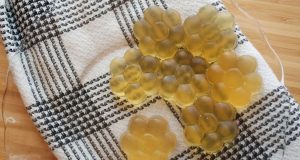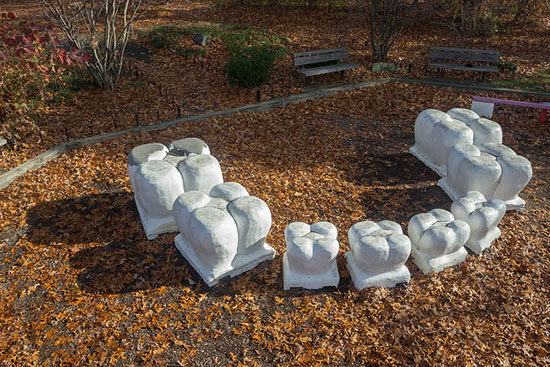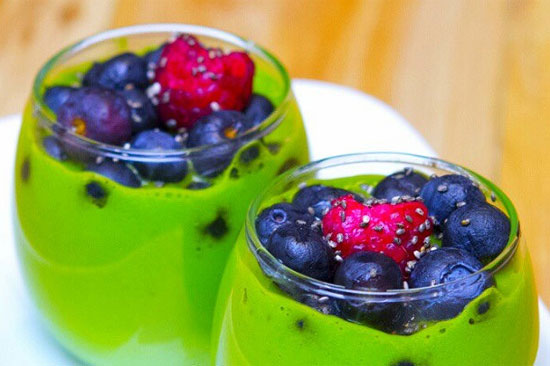Our body is constructed in such a way so that the toxins are naturally and non-stop removed from the body. However, in today’s lifestyle we are exposed to chemically processed foods all the time. Toxicity is almost impossible to be avoided and our liver and our digestive tract can easily be overwhelmed.

There are 2 common types of toxins: fat-soluble toxins and water-soluble fats. The fat-soluble toxins are the problem actually, since they can be hard to eliminate from the body.
In this group are many elements such as heavy metals, food additives, preservatives, pollutants, pesticides, plastics as well as other environmental chemicals that have to become water-soluble in order for the body to be able to fully remove them from the organism. This process is mostly in the liver, but if the digestive and detox mechanisms don’t have optimal function, these toxins can be stored in the blood, the fat cells and the brain which can result in health problems.
After we eat a meal, the toxic and the nutritional fats are shuffled in the stomach and go to the small intestine, and a chemical secreted from the gallbladder and the liver is emulsifying them, Small mucus membranes in the small intestine, sweep this area and help in absorbance of nutritional fats, sending the toxic ones to the liver. If this pathway is not working for some reason, the body will store this toxic fats instead of eliminating them.
The Intestine’s Role
There is something called the Gut Associated Lymphatic Tissue (GALT), and this surrounds the intestinal tract. The toxins and nutritional fats are absorbed here. A part of it inside of the gut wall must have healthy villi, and the outside part of the gut wall have to not be congested.
The GALT will take the absorbed material back to the liver and will use the good ones, and eliminate the bad ones. If this system becomes congested, this process can be seriously malfunctioning.
Symptoms of a Congested GALT:
- Stiffness of the joints
- Bloatedness
- Compromised elimination
- Extra weight in the abdominal area
- Skin irritation of itching
- Occasional headaches
- Swollen extremities
- Hypersensitivity
- Swollen breasts and tenderness during the monthly cycle (women)
Everything is About Elimination
Diet, stress and many other factors can influence the function of the bowels. Longer constipation can dry out the mucus membranes that look like grass and force them to create reactive mucus.
If this is what happens, the stool can be normal but the health may still be compromised, you may feel bloated or have more weight in the belly area. If the situation is even worse, you’ll notice the stool becomes looser, almost like diarrhea. If you notice mucus in your stool make sure you visit a doctor.
What this means is that the process of absorbance of good fats, and toxins elimination may be compromised. Usually, toxins absorbed in the lymph are taken care of extra white blood cells. It can happen, however, that this doesn’t happen and these toxins go back to the liver. To prevent this, the mucus membranes in the intestines have to be balanced – not to dry and not too wet.
Where Do These Toxic Fats Go?
Optimal bile flow from the liver is important to our health. This Bile is similar like the pac-man game, in that it eats fats and is the immunity response in the digestion tract. It deals with bacteria, parasites, heavy metals, pesticides and many more problem-causing materials. If you consume too much fiber, the bile will go out of your body with the fecal material, and if you don’t consume as much fiber as you need, most of the bile and its eaten chemicals are redirected to recycling in the liver. In this case the liver can become overwhelmed since it is not expecting this returning guests.
If this happens often the liver can become congested and the bile can decrease its performance, and may be too thick to neutralize the stomach acids that begin to enter the small intestine. This acids will irritate the mucus membrane and will encourage creation of more congestive mucus. This thickness of the bile can block the pancreatic enzymes flowing into the small intestine. This will further initiate more processes that can affect the overall digestion.
Overwhelming the Liver?
It is fairly simple – the fat-soluble toxins are pushed into the circulation of blood. This way, these toxins can find a haven and live there for a long time causing oxidation and degeneration. This haven can also be the brain, and here the toxins can turn in neurotoxins which can cause cognitive problems and health issues.
Fat metabolism is in a way the organism’s fuel for detoxification process and it is of crucial importance that we convert these fat cells and eliminate toxins. If the organism is away from stress, the body itself starts to naturally burn fat.
Our lifestyle plays a main role in how to burn fat. Most of the detoxification and fat-burning responsibility is placed in the integrity of the digestive system, the bile flow and the lymph.
Many people have a problem with a simple breakdown and absorbance of good fats because of congestion of the villi and the lymph. This is one more reason of wheat, soy and dairy allergies. If there is too much mucus in the gut, and the breakdown of the gluten is not properly done, it causes irritation in the intestinal wall, triggering the production of even more reactive mucus. Sometimes you can reduce or remove these foods from the diet but it is really hard to accept that you have to life like that for your whole life.
Resume:
Occasional loose stool or constipation can cause complications in the detoxification process as well as mucus in your stool. When this happens, make sure you eliminate specific foods or eat just the foods that will help you maintain the balance of the process. If you just had a high-in-calories fat meal and feel nauseous, this can be a sign that the bile work is compromised and you are storing toxic fats.
We provide you with a list of suggestions on what to read and get informed about these and similar conditions.
- Extra belly fat – Manjistha, Amalaki and Elim I.
- Occasional constipation – Elim I.
- Loose stools – Elim II.
- Sluggish liver and congested bile – Liver Repair.
- Lymph congestion – Manjistha and Turmeric Plus.
- Feeling sick after a heavy meal – Liver Repair or Beet Cleanse.
- Mucus in the stools – Amalaki and Slippery Elm Prebiotic Formula.
- Gluten sensitivity – Warm Digest, Gentle Digest or Cool Digest.












